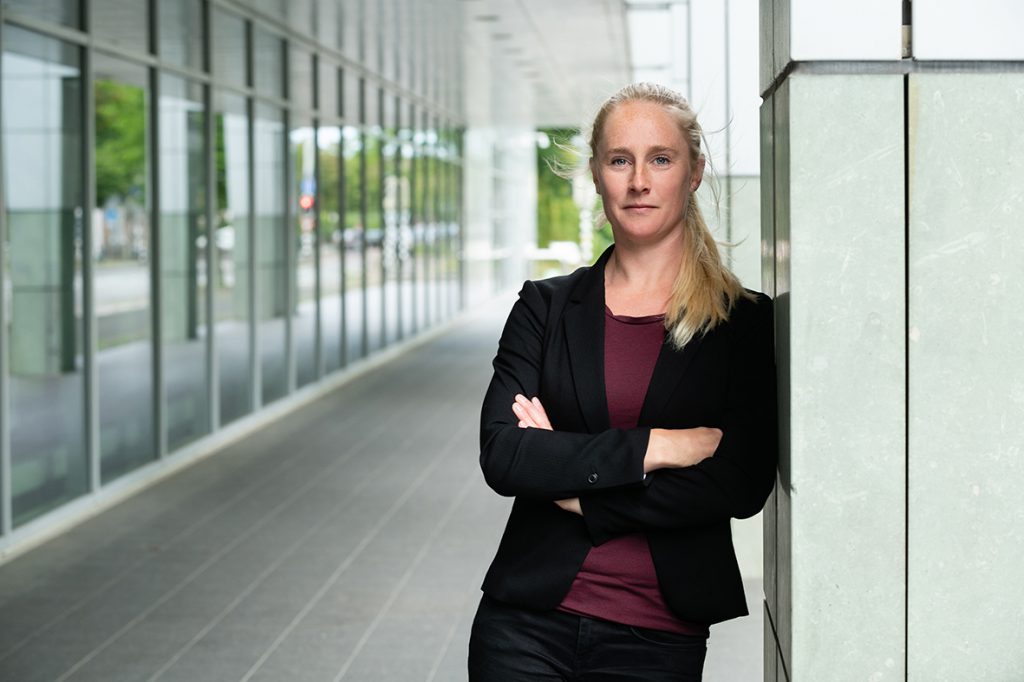Pronounced ambitions to switch to non-animal research methods are not met by outdated regulations, but also by a glaring lack of courage. This undermines not only animal welfare, but also human health and safety. This is something you should be concerned about. So argues our director and biologist Debby Weijers.

On 20 November, Nieuwsuur covered animal testing in Europe, ahead of the annual Commission on Animal Testing debate. Replacing animal testing with non-animal alternatives is proceeding very slowly and is not in line with stated ambitions, the National Committee for Animal Testing Policy (NCad) tells the editors. Animal-free innovations get caught up in a maze of European procedures and regulations. The approval process of a new research model can currently take up to 30 years. Thirty years!
Why are politicians letting us down like this?
The annual debate itself was postponed to December 12th due to illness of the state secretary. A few weeks’ delay is forgivable, but what is unpalatable, is that this is possibly going to be the last committee debate on animal testing. Replacing animal testing seems set to become part of a wider debate on animal welfare. The reason? ‘There are already so many animal-related debates’.
This argument echoes a common fallacy that is difficult to combat. Namely: that replacing animal testing with alternative research models is solely a matter of animal welfare.
90% of drugs tested on animals do not work for humans.
Of course, as director of Proefdiervrij, I cannot and will not deny that I am personally and professionally driven by the desire to eliminate animal suffering. Most viewers who saw on the Nieuwsuur broadcast about how rats climb up the walls in tiny plastic bins will understand why. And that largely left out the painful and stressful tests these animals have to undergo.
But even those who care nothing at all about animal welfare should be concerned about the stubborn insistence on animal testing and the inhibition of non-animal alternatives. As many as 9 out of 10 drugs that work for animals do not work for humans. It is a piece of inconclusive statistics that has nothing to do with animal welfare and everything to do with the relevance of research for humans.

Regulations require animal testing, even when there are alternatives.
And yet regulations continue to go round in circles. Animal tests are still required, even where proven alternatives are available. You see this particularly often when testing the safety of substances. About half a million animal tests are carried out in the Netherlands every year. In 2022, over 142,000 of these were mandatory tests for the safety of substances. Why do we still accept this? We are not arguing for a ban on animal testing, but for the use of better research models. Research models that do not needlessly hurt and kill animals ánd that produce useful results for us humans.
Old habits protect no one
I find it indefensible that animals continue to suffer when the alternatives are ready. Nor is it justifiable that people’s health and safety are currently ‘guarded’, by law, by methods that are out of date. Researchers know better, but depend on laws and regulations that give them the green light. The reason we still use laboratory animals seems to be mainly ‘because we started it once’. Holding on to what is familiar feels safe, but is nothing more than that: a feeling. A feeling that cannot be scientifically substantiated.

Animal-free research is better for humans and animals
We must get rid of the idea that non-animal research is just an ‘animal welfare issue’. Science will not progress with old methods. To get going and build on the non-animal innovations already on the table, policymakers must have the guts to trust innovative methods and make non-animal research the standard. To do this, it is important to keep showing where the shortcomings of animal models are and where the opportunities of non-animal innovations lie. The evidence that a zero-animal world is better for humans and animals is there. The expertise to make the switch to animal-free is there. The problem is not that we don’t have the alternatives. The problem is that we are afraid to embrace them.
The least we can do is set aside a full half-day once a year to discuss this important scientific transition. In its desire to put the human interest first by compressing issues of animal welfare, politicians forget that the interests of animals and humans are the same in the case of the transition to an animal-free world.

